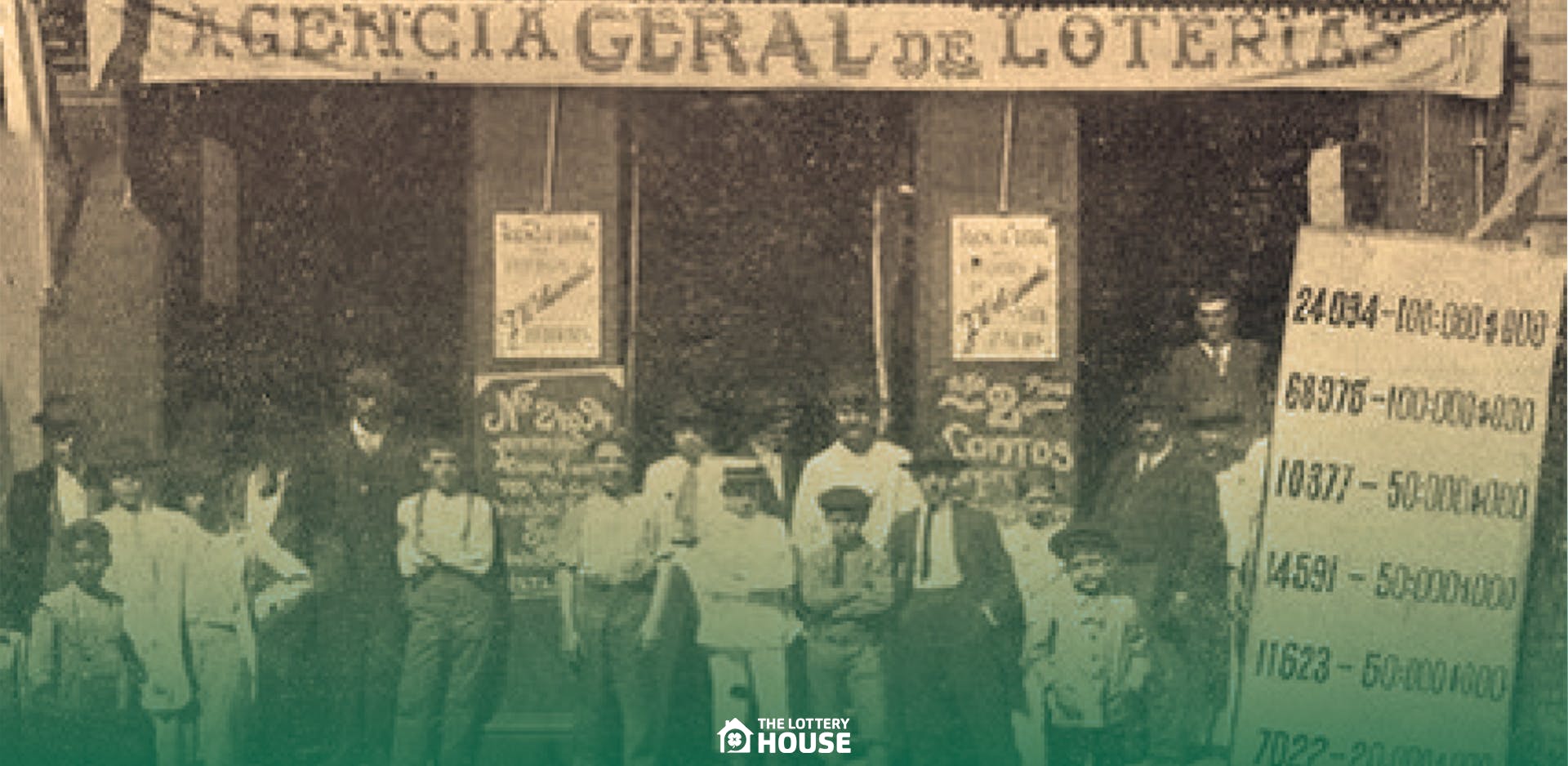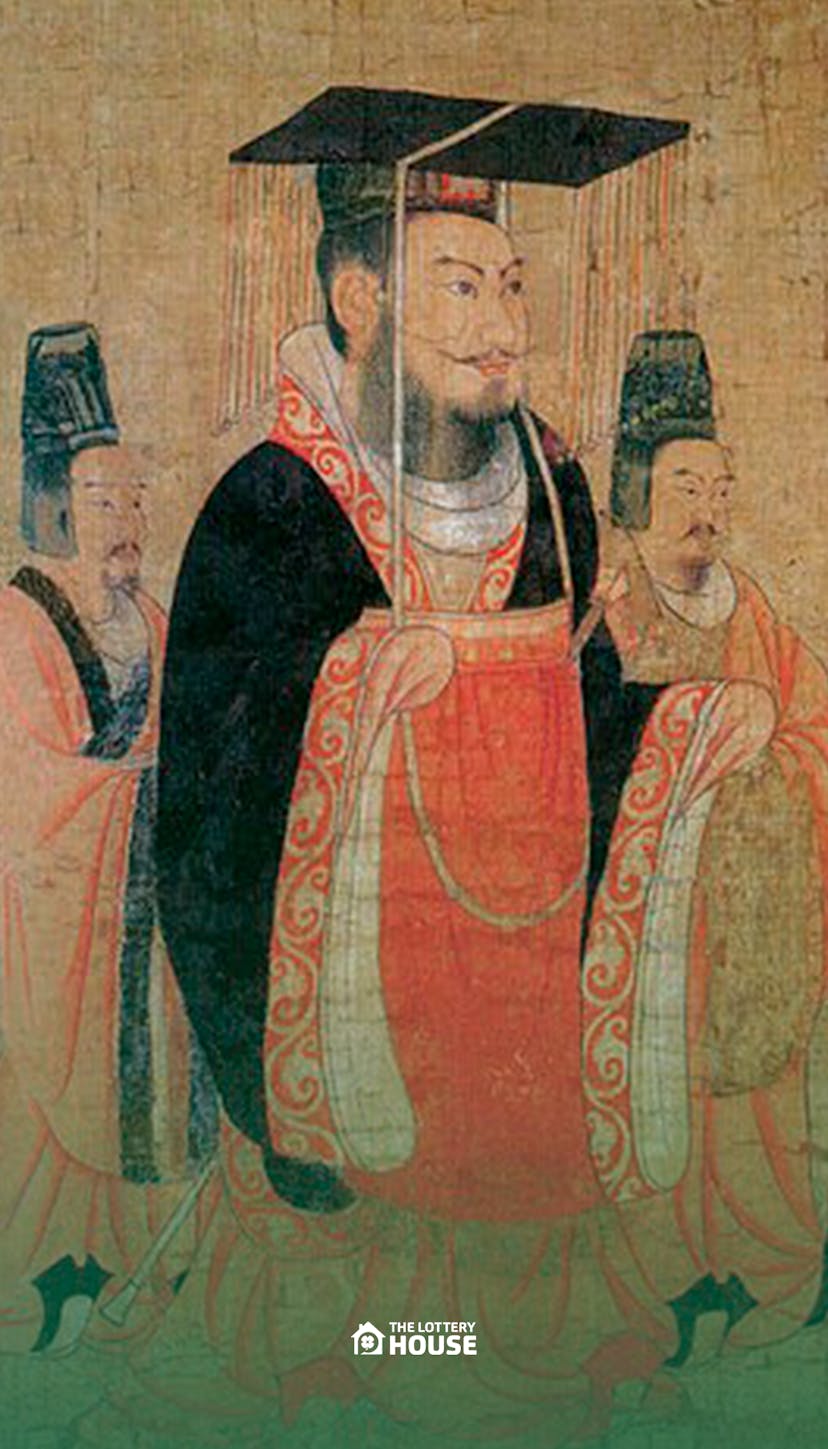A Brief History of Lotteries Around the World
Discover the fascinating history of lotteries and fall in love with this exciting game!
The Lottery House
tags:
lottery
evolution
history

Discover the fascinating history of lotteries and fall in love with this exciting game!
Lotteries have a long history around the world. The truth is that they have been one of the main forms of entertainment and, at the same time, have played a significant role worldwide, being the main means of financing social projects, infrastructure, and public policies aimed at social well-being. The birth of lotteries is marked by the need of communities to raise funds, reduce taxes, stimulate the economy, and also strengthen social projects, which promote equality and the creation of opportunities.
In this article, we will explore a little of the history of lotteries and show the social impact they have had in different regions of the world.

The first historical reports of a lottery
One of the main and oldest historical records about this game, which is so loved by millions of people around the world, comes from China. The origin of lotteries dates back to Ancient China, around 205 BC. Research reveals to us that the first lottery was created by the emperor of the Han Dynasty, Cheung Leung.
The Han Dynasty lasted from 205 BC to 220 AD and is considered one of the great periods in the history of China. Fun fact: Even today, the ethnic majority of China claims to be "descendants of Han".
Emperor Cheung Leung was facing financial problems and had the idea of organizing a lottery game, which at the time was unprecedented, to raise funds for the construction of large projects, such as the Great Wall of China, which is over 21KM long. This shows us that lotteries have in their essence a purpose that goes beyond leisure.
The truth is that lotteries have a huge social impact, and just as they contributed to the construction of the Great Wall of China, they still contribute to the construction of various structures, in addition to directly contributing to the development of various communities, large and small. In the beginning, the lottery was a success, helping the emperor solve his financial problems and becoming a valuable source of revenue for the government.
The Arrival of Lotteries in Other Continents
The popularity of lotteries in Ancient China spread to other parts of the world, reaching Europe during the Middle Ages. One of the first historical reports of lotteries on the European continent tells the story of the "Ghent Lottery" which was held in the city of Ghent, in present-day Belgium, in 1466. The lottery was created with the main objective of raising funds to strengthen the city's defenses.
Following the example of the Ghent Lottery, other cities in Europe began to create their own. Lotteries were often organized by local governments to finance public works, such as bridges, roads, and important buildings. They were also used throughout history to finance armies and other military needs.
Some examples are:
- United States Continental Army: During the American War of Independence
- Napoleonic Army: At the beginning of the 19th century, during the military campaigns led by Napoleon Bonaparte
- British Army: During the 18th and 19th centuries
An important milestone in the history of lotteries was the creation of the National Lottery of England in 1569, during the reign of Queen Elizabeth I. The National Lottery was one of the first modern state lotteries, with tickets sold to the general public. The revenue raised once again, in this case, was used to finance infrastructure projects and establish a maritime fortress for the protection of the country.
Over the centuries, lotteries have evolved in terms of organization and regulation. In many countries, government agencies were established to oversee lotteries and ensure their integrity, safety, and transparency. In addition, lotteries have undergone significant technological advances that have improved the player experience and theefficiency of the games.
One of the main investments of lotteries since ancient times is in security. The transparency and strengthening of mechanisms to ensure impartiality and complete independence of results has been a care that brings to modern lotteries the reliability and respect of the entire society.
The popularization of lotteries in America
At the end of the 18th century and the beginning of the 19th century, lotteries began to spread across the United States. In 1612, the first public lottery was held in Jamestown, Virginia, to finance colonial settlements. Known as the "1612 Virginia Lottery", the lottery house was used to improve the living conditions of the colony, financing roads, bridges, and supporting other needs of that community.
During the 19th century, lotteries became popular in various parts of the country, being used to finance the construction of roads, schools, and hospitals. At this point, the United States took even more steps to make lotteries increasingly safe and reliable.

Fun fact: One of the most recognized universities in the world, Harvard, had part of the financing of its construction the financial contribution of a lottery. The Harvard College Lottery was a lottery established in 1744 to help finance the construction of buildings at Harvard College, which would later become the famous Harvard University. The lottery was an initiative led by the president of Harvard College at the time, Edward Holyoke.
In the 20th century, technology played a key role in transforming lotteries. The use of electronic drawing machines replaced manual methods, increasing the efficiency and impartiality of the draws. In addition, the introduction of computerized lottery systems allowed the sale of tickets online, expanding the reach of lotteries to the whole world and facilitating player participation.
Another significant advance was the introduction of number lotteries, where players choose their own numbers instead of receiving pre-printed tickets. This added an element of strategy and active participation on the part of the players. In addition, lotteries began to offer a gigantic variety of games, including scratch cards, instant games, and special draws with millionaire prizes.
With the popularization of the internet and the advent of digital technologies, lotteries took another leap in their evolution. Now, players can participate in online lottery draws, buy tickets through various websites and mobile apps, and enjoy a unique, indescribable, and above all, accessible experience. Lotteries have also become global, with international draws offering gigantic prizes of billions of dollars.
In addition to providing unique entertainment and excitement to players, lotteries have played a significant role in society throughout history. The resources raised through lotteries are often allocated to government projects, in the construction of structures, strengthening of armies and security forces of various countries, and also social projects and public policies, such as education, health, environmental protection, and community development. These funds have the potential to improve people's quality of life and promote the general well-being of an entire nation.
In summary, lotteries have a rich and diverse history around the world. From the first records in Ancient China to modern online draws, they have evolved to meet the needs and preferences of players, incorporating technological advances and offering prizes that change the reality of thousands of people. At the same time, lotteries have played a key role in building a better society. With their global appeal and adaptability, lotteries will continue to be an exciting part of culture and society for many years to come.
Remember, when playing the lottery be responsible, respect your financial limits, and have fun!